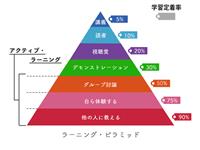Chapter 9 Investment
Companies
Chapter 9
Investment Companies
Investment companies
– Investment companies are a type of financial
intermediary,they obtain money from investors and
use it to purchase financial assets,
– In return the investor receive certain rights
regarding the financial assets that the investment
company has invested and any earnings that it may
generate.
– In the simplest and most common situation,the
investment company has only one type of investor—
stockholders,
Chapter 9
Investment Companies
– For an individual there are two advantages
to investing in such company instead of
investing directly in the financial assets that
these companies own,One is economies of
scale(portfolio) and the other is professional
management(specialist ).
Net asset value (NAV)
– An important concept in understanding how
investment company operates is net asset
value,
Chapter 9
Investment Companies
– If an investment company’s NAV at the end
of day t,it can be determined by the following
equation:
– Where MAV,LIAB,NSA denote the market
value of the investment company’s asset,the
dollar amount of the investment company’s
liabilities,and the number of shares the IC
has outstanding at the day.
t
tt
t
N SO
L I A BM V AN A V
Chapter 9
Investment Companies
Major types of investment companies
– Unit investment trust
A unit investment trust is an investment
company that owns a fixed set of securities for
the life of the company,that is the investment
company rarely alters the composition of its
portfolio over the life of the company.
Formation — to form a UIT,a sponsor( often
brokerage firm) purchases a specific set of
financial asset and deposits them with a trustee.
Chapter 9
Investment Companies
The security public offered from the UIT often
called redeemable trust certificated,
– Managed companies
Managed company should have board of directors
and portfolio manager,like the other generally
corporate.
Investor received return form IC should pay
management fees(also called advisory fees).
Closed— end investment company
– Unlike UIT closed— end investment companies
Chapter 9
Investment Companies
more often called closed— end funds,do not stand
ready to purchase their own shares whenever
one of their owners decides to sell them,Their
shares are traded in the organized exchange or
OTC,
Most closed— end funds have unlimited lives.
– Open— end investment company
Investment policy
Chapter 9
Investment Companies
Chinese investment funds
如基金管理暂行办法中规定,封闭式基金的募集期限为 3
个月,自该基金批准之日起计算。封闭式基金自批准之日起 3个月内募集的资金超过该基金批准规模的 80%
的,该基金方可成立。开放式基金自批准之日起 3个月内净销售额超过 2亿元的,该基金方可成立。封闭式基金募集期满时,其所募集的资金少于该基金批准规模的 80%的,该基金不得成立。开放式基金自批准之日起
3个月内净销售额少于 2亿元的,该基金不得成立。基金发起人必须承担基金募集费用,已募集的资金并加计银行活期存款利息必须在 30天内退还基金认购人。
Chapter 9
Investment Companies
投资基金的发起设立,应向中国证监会提交以下文件:
申请报告;发起人名单及协议;基金契约和托管协议;招募说明书;证券公司,信托投资公司作为发起人的,经会计师事务所审计的发起人最近 3年的财务报告;律师事务所出具的法律意见书;募集方案;中国证监会要求提交的其他文件 。
Chapter 9
Investment Companies
基金发起人认购基金单位占基金总额的比例和在基金存续期间持有基金单位占基金总额的比例,由中国证监会规定 。 闭式基金的存续时间不得少于 5年,最低募集数额不得少于 2亿元 。 基金发起人应当于基金募集前 3
天在中国证监会指定的报刊上刊载招募说明书 。
封闭式基金扩募或者续期,应当具备下列条件,并经中国证监会审查批准:年收益率高于全国基金平均收益率;基金托管人,基金管理人最近 3年内无重大违法,
违规行为;基金持有人大会和基金托管人同意扩募或者续期;中国证监会规定的其他条件 。
开放式基金只能在符合国家规定的场所中申购、赎回。
Chapter 9
Investment Companies
基金制定投资政策的依据:
证券投资基金制定投资政策的具体依据为:根据宏观经济环境及其对证券市场的影响制定投资策略;,根据货币政策的变化、利率的走势决定各国债品种占投资组合的比重; 根据对行业及上市公司的调查研究确定具体投资股票的数量和金额;
Chapter 9
Investment Companies
根据,暂行办法,和有关的政策、法规确定投资组合:一个基金投资于股票、债券的比例,
不得低于该基金资产总值的 80%;一个基金持有一家上市公司的股票,不得超过该基金资产净值的 10%;同一基金管理人管理的全部基金持有一家公司发行的证券,不得超过该证券的
10%;一个基金投资于国家债券的比例,不得低于该基金资产净值的 20%;中国证监会规定的其他比例限制。
Companies
Chapter 9
Investment Companies
Investment companies
– Investment companies are a type of financial
intermediary,they obtain money from investors and
use it to purchase financial assets,
– In return the investor receive certain rights
regarding the financial assets that the investment
company has invested and any earnings that it may
generate.
– In the simplest and most common situation,the
investment company has only one type of investor—
stockholders,
Chapter 9
Investment Companies
– For an individual there are two advantages
to investing in such company instead of
investing directly in the financial assets that
these companies own,One is economies of
scale(portfolio) and the other is professional
management(specialist ).
Net asset value (NAV)
– An important concept in understanding how
investment company operates is net asset
value,
Chapter 9
Investment Companies
– If an investment company’s NAV at the end
of day t,it can be determined by the following
equation:
– Where MAV,LIAB,NSA denote the market
value of the investment company’s asset,the
dollar amount of the investment company’s
liabilities,and the number of shares the IC
has outstanding at the day.
t
tt
t
N SO
L I A BM V AN A V
Chapter 9
Investment Companies
Major types of investment companies
– Unit investment trust
A unit investment trust is an investment
company that owns a fixed set of securities for
the life of the company,that is the investment
company rarely alters the composition of its
portfolio over the life of the company.
Formation — to form a UIT,a sponsor( often
brokerage firm) purchases a specific set of
financial asset and deposits them with a trustee.
Chapter 9
Investment Companies
The security public offered from the UIT often
called redeemable trust certificated,
– Managed companies
Managed company should have board of directors
and portfolio manager,like the other generally
corporate.
Investor received return form IC should pay
management fees(also called advisory fees).
Closed— end investment company
– Unlike UIT closed— end investment companies
Chapter 9
Investment Companies
more often called closed— end funds,do not stand
ready to purchase their own shares whenever
one of their owners decides to sell them,Their
shares are traded in the organized exchange or
OTC,
Most closed— end funds have unlimited lives.
– Open— end investment company
Investment policy
Chapter 9
Investment Companies
Chinese investment funds
如基金管理暂行办法中规定,封闭式基金的募集期限为 3
个月,自该基金批准之日起计算。封闭式基金自批准之日起 3个月内募集的资金超过该基金批准规模的 80%
的,该基金方可成立。开放式基金自批准之日起 3个月内净销售额超过 2亿元的,该基金方可成立。封闭式基金募集期满时,其所募集的资金少于该基金批准规模的 80%的,该基金不得成立。开放式基金自批准之日起
3个月内净销售额少于 2亿元的,该基金不得成立。基金发起人必须承担基金募集费用,已募集的资金并加计银行活期存款利息必须在 30天内退还基金认购人。
Chapter 9
Investment Companies
投资基金的发起设立,应向中国证监会提交以下文件:
申请报告;发起人名单及协议;基金契约和托管协议;招募说明书;证券公司,信托投资公司作为发起人的,经会计师事务所审计的发起人最近 3年的财务报告;律师事务所出具的法律意见书;募集方案;中国证监会要求提交的其他文件 。
Chapter 9
Investment Companies
基金发起人认购基金单位占基金总额的比例和在基金存续期间持有基金单位占基金总额的比例,由中国证监会规定 。 闭式基金的存续时间不得少于 5年,最低募集数额不得少于 2亿元 。 基金发起人应当于基金募集前 3
天在中国证监会指定的报刊上刊载招募说明书 。
封闭式基金扩募或者续期,应当具备下列条件,并经中国证监会审查批准:年收益率高于全国基金平均收益率;基金托管人,基金管理人最近 3年内无重大违法,
违规行为;基金持有人大会和基金托管人同意扩募或者续期;中国证监会规定的其他条件 。
开放式基金只能在符合国家规定的场所中申购、赎回。
Chapter 9
Investment Companies
基金制定投资政策的依据:
证券投资基金制定投资政策的具体依据为:根据宏观经济环境及其对证券市场的影响制定投资策略;,根据货币政策的变化、利率的走势决定各国债品种占投资组合的比重; 根据对行业及上市公司的调查研究确定具体投资股票的数量和金额;
Chapter 9
Investment Companies
根据,暂行办法,和有关的政策、法规确定投资组合:一个基金投资于股票、债券的比例,
不得低于该基金资产总值的 80%;一个基金持有一家上市公司的股票,不得超过该基金资产净值的 10%;同一基金管理人管理的全部基金持有一家公司发行的证券,不得超过该证券的
10%;一个基金投资于国家债券的比例,不得低于该基金资产净值的 20%;中国证监会规定的其他比例限制。



